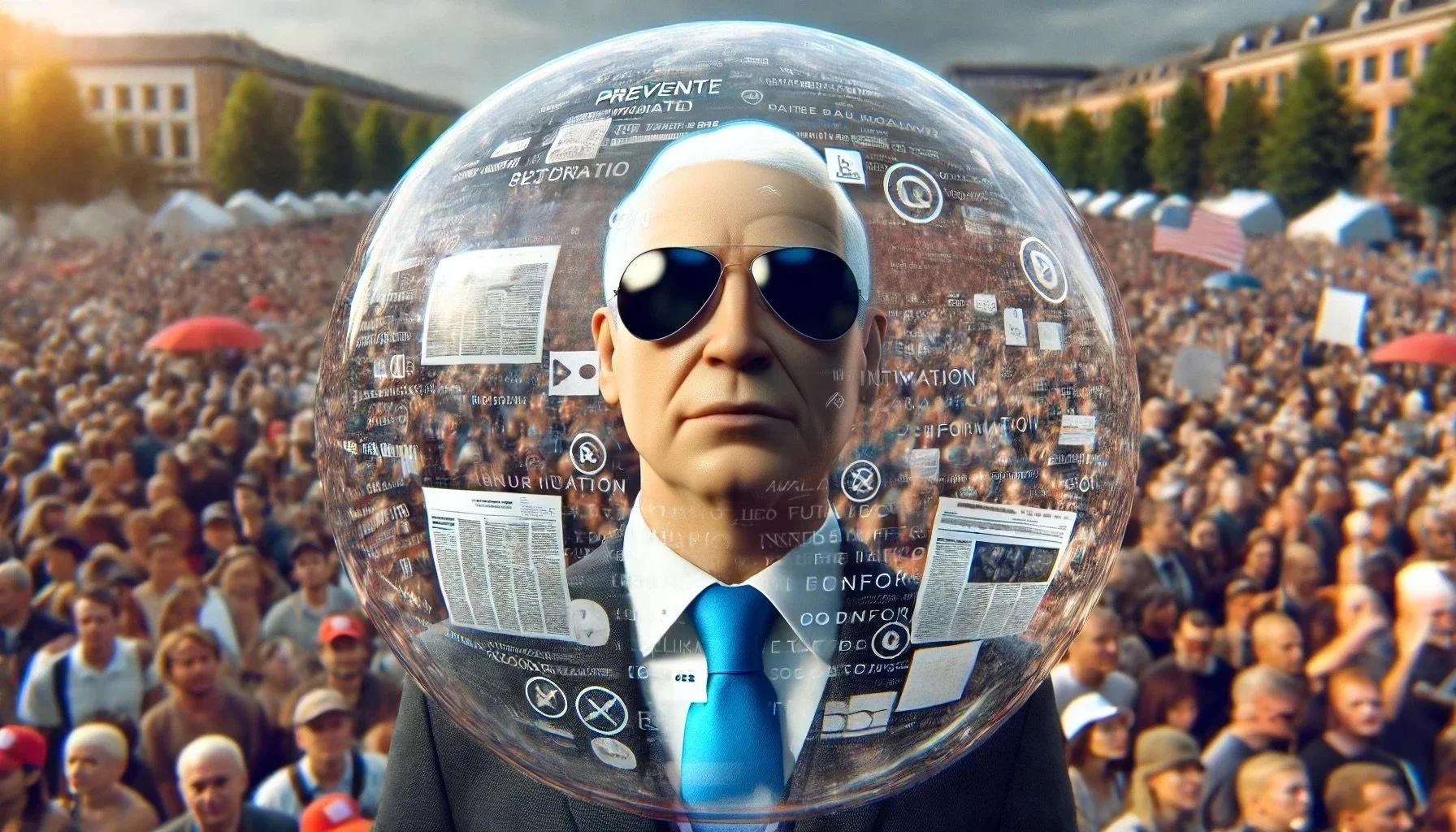Bursting Biden’s Bubble
The CEO of a large company I worked for joined an offsite for the corporate communications team. He handed out his bio with a request to share his accomplishments. From his perspective, the negative publicity he’d been receiving simply reflected a lack of understanding by the media (and perhaps the communications team) of his leadership and track record. The next day he resigned.
Whether in the bubble of leadership or the circle of acolytes closest to us, our ability to see the forest for the trees is severely limited. If we want to know the truth – at least the version others see – we must seek it out. We need to give others permission to tell us what they think, no matter how hard the message may be.
For President Biden this mattered before the shocking assassination attempt on former President Donald Trump. It matters more today given its potential impact on the election.
In the run up to the weekend, despite Biden’s efforts to position his disastrous debate performance as a “bad night,” the momentum for change was gaining steam, because what we saw resonated with existing concerns about his age and mental acuity. When waves of perceptions collide, they can amplify one another to have a tsunami-sized impact. This is what we have been seeing.
All too often the response in a crisis is to shut ourselves off from reality, retreat deeper into our bubbles, and circle the wagons. Despite genuine accomplishments as president, the hanging chad remains - is he up to the task of being the leader of the free world for a second term? That’s what the election is about.
Presidents and CEOs often fall into the trap of seeing issues they face as communications challenges rather than fundamental problems that require real change. The fundamental problem for Biden is the clear impact of his age on his performance. With the terrible events of the weekend still fresh in our minds, the Washington cognoscenti reading the tea leaves are likely doubling down on efforts to persuade Biden that it is in his and the country’s best interest to find a gracious way to pass the baton of power.
For those in bubbles, especially when they believe they are the only ones who can save the nation, or in the case of a CEO, their company, changing course can be excruciatingly difficult. A hard push or the intercession of a trusted adviser may be required.
Biden’s stated position that he is in the race to the end reflects a man digging in, not digging out. Most bubbles burst long after “it’s time to go” has been written on the wall.
There are many takeaways from what is going on in Washington. Here are six for communicators:
When we or the leaders we work with are in bubbles, we/they are at risk of not seeing the world as it sees us/them.
We need to seek out and give permission to those willing to share the truth (as they see it) to provide it, not shut them down.
It is only by understanding fundamental issues that it becomes possible to fix them (or recognize that they may not be fixable).
Once fixes are made, communications have a chance of succeeding.
As counselors, we need to be truth-tellers. We should never be afraid of bursting bubbles (at least in the context of communications).
Our legacies, and those of the leaders we work with, will be defined by the end of our careers.
What President Biden does over the coming days and weeks will determine the future of the country. The lessons we draw from his actions may shape our professional futures.


